Frequent vomiting is a problem for some cats, and the cause can be tough to track down. It could be caused by hairballs or a sign of a serious illness. Occasionally, cats vomit on a semi-regular basis for no identifiable reason at all. Complications of frequent vomiting can include malnutrition and esophageal irritation, so it shouldn't be ignored. A thorough veterinary exam can help determine an accurate diagnosis and treatment options. Find out more about the underlying causes for frequent vomiting, how a diagnosis is made, and how this condition may be treated.
Warning
If you suspect that your cat has eaten a poisonous substance, call your vet or the Pet Poison Helpline immediately.
Causes of Frequent Vomiting in Cats
Frequent vomiting is a general condition in which a cat vomits several times in a short period of hours or days, or in which a cat vomits chronically on a semi-regular basis (such as after meals). There are numerous potential causes of frequent vomiting in cats, some of which are benign and easy to treat. Other causes may require medical investigation and more intensive treatments.
Eating Too Fast
One common cause of frequent vomiting is eating too much food, too fast. This can happen to any healthy cat. You will notice your cat vomits barely digested or undigested food immediately after eating.
Food Allergies
The most common food allergens in cats are beef, fish, and chicken. Other ingredients can lead to allergies as well. Cats with food allergies are treated with special diets containing non-allergenic ingredients.
Poisoning
Sudden vomiting can also be caused by poisoning, which is an emergency. There are several sources of toxins in the average home, including antifreeze, human medication, household cleaners, pesticides, and certain house plants.
Feline Inflammatory Bowel Disease
Feline Inflammatory Bowel Disease is a condition that is usually accompanied by diarrhea and weight loss. This disease can occur anywhere in a cat's intestinal tract, including the stomach (gastritis), the small intestine (enteritis), or the large intestine (colitis).
Pancreatits
Inflammation of the pancreas, which is part of the endocrine and digestive systems, can cause vomiting, lethargy, diarrhea, fever, and an unwillingness to drink water or eat.
Chronic Kidney Disease (CKD)
Signs of CKD include vomiting, lethargy, diarrhea, weight loss, and increased water consumption.
Diabetes
If your cat has diabetes, vomiting is common and often one of the first signs something is wrong. Other signs include increased thirst, hunger, and urination as well as weight loss and muscle weakness.
Hyperthryroidism
Frequent vomiting along with increased appetite and weight loss are also indicators of hyperthyroidism or an overactive thyroid gland, which is part of the endocrine system. You can also look for signs such as irritability, diarrhea, weakness, and excessive thirst. Additionally, your cat's fur may appear as if it's not being groomed as normal.
Hairballs
Although hairballs are common in cats, they're no laughing matter. Hairballs that are not vomited up can cause a bowel obstruction. Surgery is required to remove the obstruction.
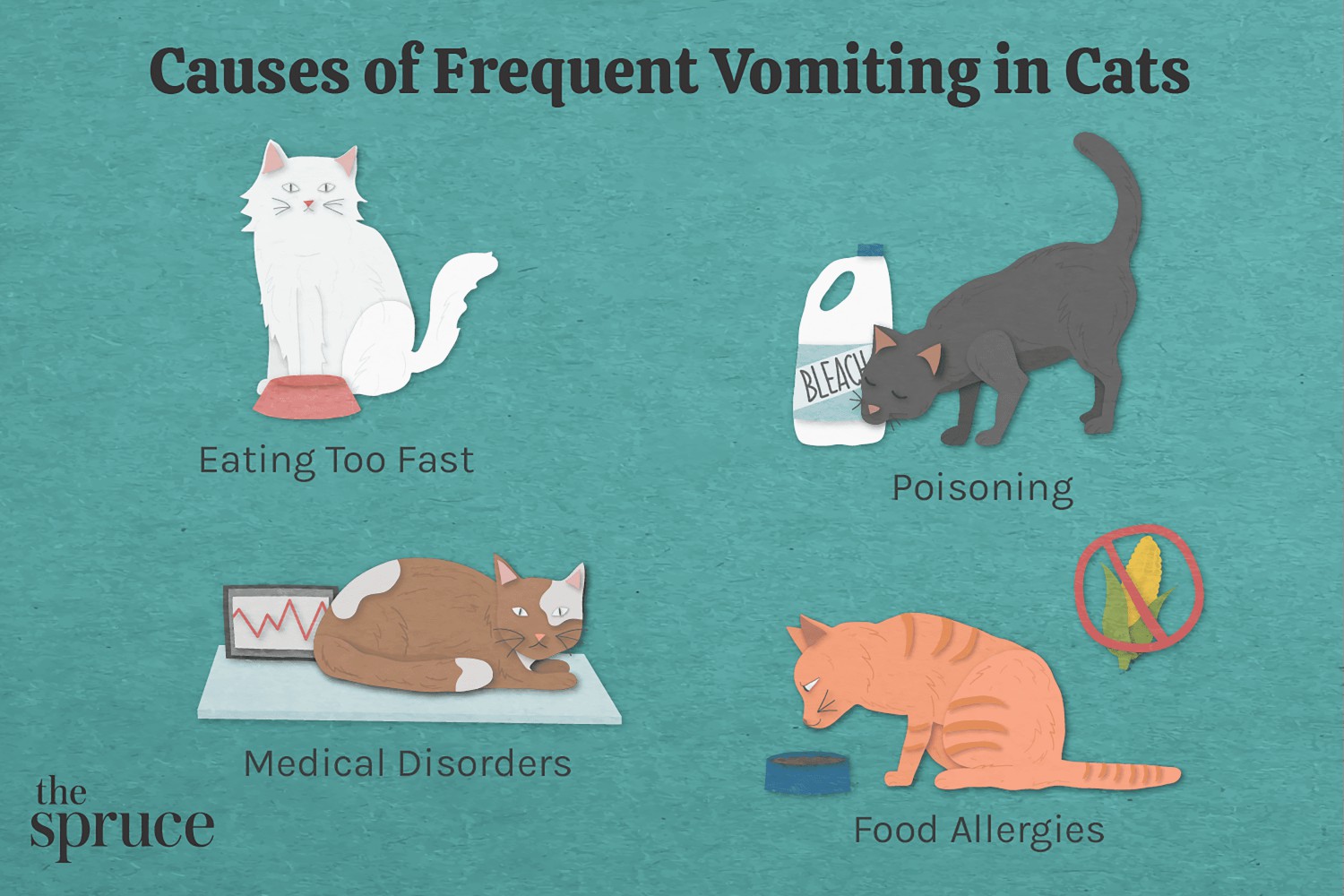
The Spruce / Katie Kerpel
What to Do If Your Cat Is Vomiting Frequently
If your cat vomits repeatedly in one day or vomits occasionally for more than two days in a row, call your veterinarian. Because there are so many different potential causes of frequent vomiting, your vet will request a thorough history, including your cat's current and past diet, eating habits, exposure to chemicals, and behavior (excessive grooming or eating too fast). If a diagnosis cannot be made on history and physical examination alone, your vet may opt for laboratory blood and urine panels as well as a fecal test to check for abnormalities or parasites. X-rays or ultrasounds may be necessary if an obstruction is suspected. Occasionally, a diagnosis will be attempted through dietary change to see if a food allergy or intolerance caused the vomiting.
Treatment for Frequent Vomiting
The treatment for your cat's vomiting depends on the underlying cause. For instance, treatment for feline inflammatory bowel disease includes medication. If your cat also has food allergies, it needs a limited-ingredient diet. If your cat has kidney disease, your vet may recommend blood pressure medication and increasing fluid intake. Hyperthyroidism can be treated with surgery and medication. Your vet will guide you through the options and help you make an informed decision based on your cat's specific needs.
The prognosis for most cats that experience frequent vomiting is good because a simple change in diet does the trick. Toxic exposures and diseases are more serious and not as easily treated, and the prognosis for each cat varies on the individual circumstance.
How to Prevent Frequent Vomiting
You can take action to help prevent or decrease the frequency of vomiting in your cat in various ways, including:
- Feed frequent small meals.
- Spread food on a plate rather than piling it in a bowl.
- Try an automatic feeder that dispenses a specific amount of food at a time.
- If you suspect food allergies, talk with your veterinarian about different options. Be sure to read the ingredient list carefully.
- To prevent the possibility of poisoning, keep toxic chemicals, medications, and other potentially hazardous away from your pet. Remember, cats are curious and can get into or jump on things you might not suspect. Make sure there are no antifreeze spills on your garage floor or driveway. Keep your cat out of the garage. Pet-proof your home regularly.
- To prevent hairballs, brush your cat and prevent it from over-grooming. Frequent use of a high-quality cat brush can go a long way toward preventing a veterinary emergency. You can also try hairball-reducing food that includes more fiber.
Related Article

Can Cats Eat Pumpkin? This Vet Says Yes
Whether it’s spooky season, Thanksgiving, or just another day at home, you might be tempted to gi

10 Ways to Find Your Lost Cat
If you're the owner of an indoor-outdoor cat, you may be faced with a situation in which your kitty
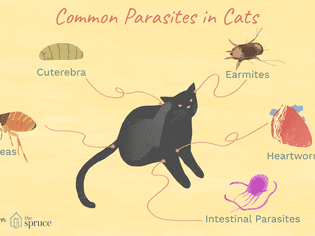
Worms, Mites, Ticks and Other Bugs That Live on Cats
Cats are susceptible to many different types of bugs and parasites, but there are two main classifi
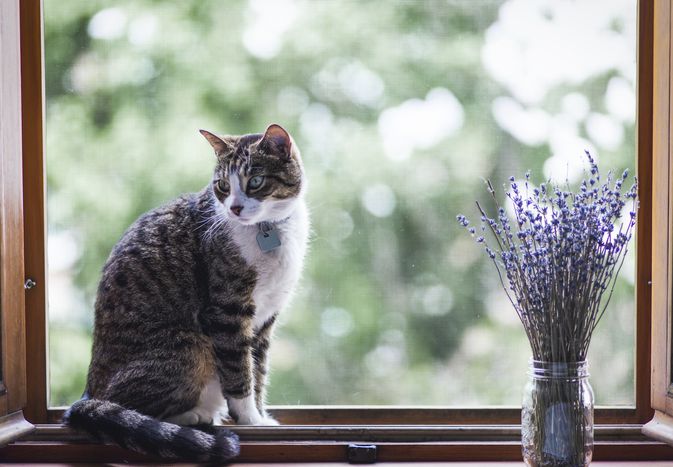
Is Lavender Safe for Cats?
Lavender is a popular herbaceous plant praised for its aroma and calming properties in people, whic
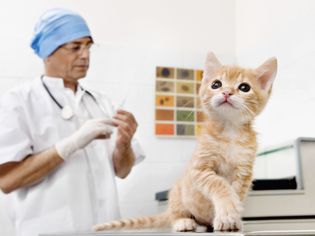
The Debate Around the FIV Vaccine for Cats
When the pet vaccine for FIV (Feline Immunodeficiency Virus) was announced in March 2002, it was m
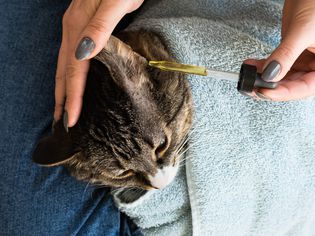
How to Clean Cat Ears in 8 Steps
Depending on your cat’s grooming habits and environment, you may or may not need to clean its ear
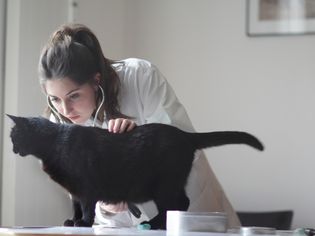
Frequent Vomiting in Cats
Frequent vomiting is a problem for some cats, and the cause can be tough to track down. It could be

Can My Cat Catch My Cold?
If you have a cold, you may wonder if your cat can get this illness too. While cats can be infected
About FleaFree Feline
We are a premier digital platform committed to delivering high-quality content to our readers. Our mission is to provide accurate, reliable, and engaging information that adds value to our audience's daily lives.
Our team consists of experienced content creators and subject matter experts who uphold the highest standards of professionalism. In an era of information overload, we curate content with care, ensuring our users receive only the most relevant and trustworthy information.
Beyond just reporting facts, we focus on depth and context. Through expert analysis, comprehensive research, and clear presentation, we help our audience gain meaningful insights and make informed decisions.
We take pride in being a trusted information source for our growing community of readers. Our user-first approach means we continuously adapt to provide content that meets our audience's evolving needs and interests.
Innovation and excellence drive everything we do. We're committed to improving our platform and services to deliver the best possible experience for our users.

Comments on " Frequent Vomiting in Cats" :